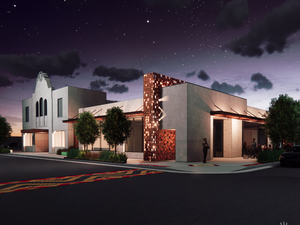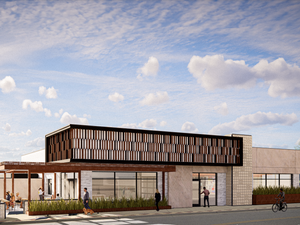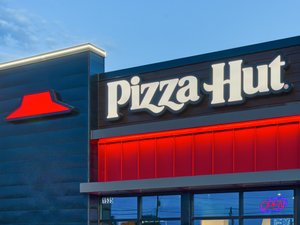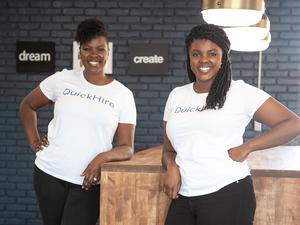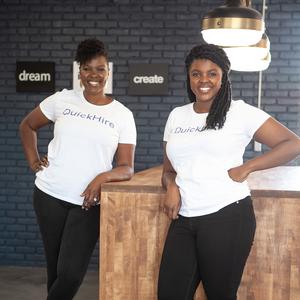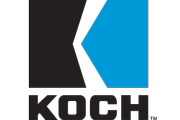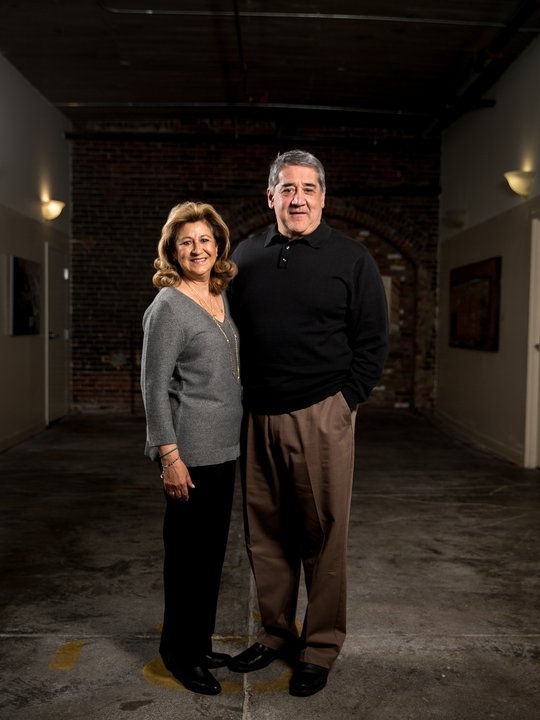
When it comes to highly-respected figures in Wichita — with a track record locally and nationally of helping those in the business, education and nonprofit sectors — it's hard to beat the resumes of Gene and Yolanda Camarena.
Gene Camarena is the president and CEO of La Raza Pizza Inc., has served multiple times on the International Pizza Hut Franchise Association board and was inducted into the Pizza Hut Franchisee Hall of Fame. Among several other prominent board positions — including at the Hispanic Scholarship Fund, United Way of the Plains, Hispanics in Real Estate and Kansas Big Brothers Big Sisters — he's a board member at WorkTorch and an investor in the Wichita-based tech startup.
Business Startup Guide: Insights to help entrepreneurs get their ideas off the ground in 2024
Yolanda Camarena's career path has included time as associate director of graduate programs at the Kennedy School of Government at Harvard University and Newman University's director of admissions. She serves on the national board of the Mexican American Legal Defense Fund and is also on the boards of Newman University and Phillips Fundamental Learning Center, among others.
Both are on the board of Empower — a local nonprofit focused on educational, workforce and small business development for the city's Hispanic community — with Camarena serving as its board chair.
The WBJ recently spoke with the duo, who were the spring 2024 Entrepreneurs-in-Residence at Wichita State University's Barton School of Business, about a range of startup-related issues.
The following Q&A has been edited for clarity and brevity.
What the Camarenas say about...
Wichita's local startup and small business scene:
Gene: There's a lot of activity. And the nice thing about Wichita is it's a very entrepreneurial environment... Most of the investment that I know about is individual business people that like a concept or like a person and they write them a check and provide advice to them. I think that's pretty healthy — and certainly much more than maybe other towns this size, because there's been a lot of wealth generated in Wichita through big concepts like Rent-A-Center, Pizza Hut and Freddy's (Frozen Custard & Steakburgers). So that entrepreneurial sort of activity continues to manifest itself and in the economy.
Yolanda: I think what you're starting to see a lot of within small businesses, just in general, is adding that social conscience with it — becoming that servant, community servant, as well as becoming an entrepreneur.
The biggest hurdle in 2024 to starting a new business:
Gene: Things are a little tougher from a cost of capital standpoint, more than anything else, and interest rates. I think there's always this sort of thing in the background: when is the recession going to hit? When is inflation going to be under control? And for me, as a businessman, that's something that causes me to... be more cautious. If I'm going to invest in something, the due-diligence intensity ratchets up two to three times what it was before, when the economy was hitting on all cylinders. Although it's good right now, when that cost of capital goes up — which, again, increases the rates of return that you're expecting — it's harder to find deals that fit those economics anymore.
... Staffing talent, recruiting and development. For us, it's hiring the right people and getting them to stay. The job market is so fluid now that keeping somebody just for six months can be a victory at times. What people don't understand is just that incredible cost of turnover. I don't blame Gen Z and millennials for actively looking to better their compensation, especially if the market will let them do that. Thirty years ago, the market didn't let them do that. If I looked at a resume (back then) that somebody hopped every one or two years, I wouldn't hire them. Now, it's kind of commonplace. So with that fluid of an employment market, it's just a real challenge to keep talent in your business.
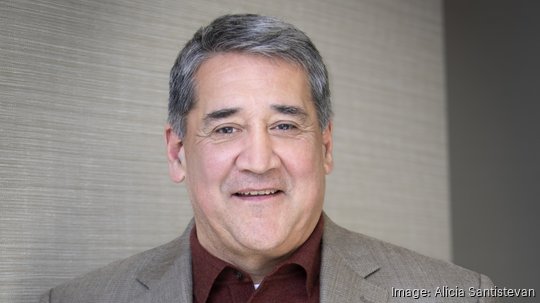
A new business Wichita readers should know about:
WorkTorch
- Gene: I think they (Deborah Gladney and Angela Muhwezi-Hall) are going about it the right way, because they literally sensed an opening in the market three or four years ago and attacked that. And they pivoted as well, because formerly they were just mainly in recruitment. Now, as they're adding recruitment in, a big piece of their business is now retention, employee programs and benefits management, that sort of thing. Given the fluidity of the employment market, it makes retention that much more critical...It's no transactional, it's more of a career-development platform, and I think that will ultimately separate them from some of the other 'Indeeds' that are much more of a transactional nature.
Las Adelitas Cafe
- Gene: He (Oscar Pineda) is the quintessential immigrant, starting his own business. The reason we like him is because he is a master at what he does. And what he does is he finds great coffee beans, and he knows the market, not only in Mexico but in Central America. He knows where to source it, and then he is a master roaster, too. You're going to get the best cup of coffee anywhere in the city there.
- Yolanda: He's created something that is different in the sense that he's brought his culture — the flavors and traditions of his culture — into the coffee-making.
Pinole Blue
- Gene: It's been a journey. But I think — I've been working with him (Eddie Sandoval) for the last six to eight months — they're to the point where they really defined where their target market is and how they're going to build their brand awareness in those markets.
On what concepts they gravitate toward when it comes to investing...
Gene: The bulk of our investment in this community is more social entrepreneurship versus business. We do consider, when we invest in nonprofits, that this is an investment that is going to have an impact — not necessarily economic to us, but certainly to the city, to the people that they're serving. That by far outweighs any business sort of investments. I mean, it's not even close in terms of both our money and our time. That's purposeful and something that, quite frankly, is of more interest to us right now. We're kind of, I would say, sloping down on the business investment side and ramping up on the social.
On how being an entrepreneur now compares to several decades ago...
Gene: I've said this to young entrepreneurs: I think it is much more difficult to start something up these days than it was 30 years ago. Just because there's so much competition of people looking and seeing the same things. When you have more competition in a specific space, not everybody's going to win — but even the winner is going to go through some pain when you got five competitors versus one or two. It's those ones who can survive that are going to be successful, but it certainly seems like it takes a little longer, a little more capital and more hard work.
Yolanda: When we were starting, we didn't have the e-commerce like it is now. You didn't have the internet. It's very, very different. Some people will start their businesses and it may not be brick and mortar, it might be just right on their computer doing it online.
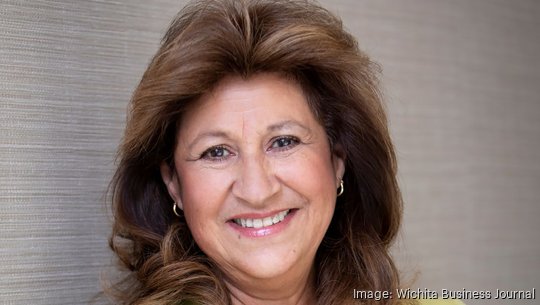
On what they emphasize to aspiring entrepreneurs...
Yolanda: Education was always a priority (for me). I think that's been the big indicator of success for us, our education that got us started. And to this day, it continues. Seeing how hard it is for a lot of these people who want to start businesses. They have the passion, they have the desire, they can work as hard as you can, but it's a little bit more than that in order to be successful. We've seen that over the years, even within ourselves and our growth and particularly Gene's growth and what he's learned and what he's done. He couldn't have done it without the education that he had in order to be successful.
Gene: I was an accounting major, so I could keep the books but as far as HR, operations management, how you capitalize a business, all those things were something that either I had to get experience at or learn. So I went back to school and got my MBA, and that was a huge piece of what I think has made us somewhat successful. So we always encourage the entrepreneurs that we meet with to make sure you get some education, and if that's not something that's possible right now, then build a network of mentors that have the skills in banking and finance. That's part of what we're trying to do with Empower. You may not have your undergraduate degree or your MBA, but you're going to have some people who do and who have experience in business.
The other thing is just be prepared to work hard. A lot of people say, 'I'll be successful, because I love what I do and I'm passionate about it.' But in those early years, it's no fun. I mean, you're a trying to find a passion, and you think it's going to come some day but I'm just grinding right now, because I just got so much to do, and it's so hard and it's so stressful. You sit there a lot of times and ask yourself, 'Why am I doing this? This is crazy. I'm away from my family. I don't have any time for myself. I'm stressed. I got a bunch of bank loans that I got to pay back.' So be prepared for it not to be fun. But if you can get past that startup stage and get into a growth mode, then it becomes much more fun and much more something that you're passionate about. That's when you think about scaling, and getting excited about developing people that go along with you. That's the fun part. It can take five or 10 years or 15 years to get to that point. Oftentimes that's where the shake-out happens — in that first two to five years. People either run out of capital or run out of energy and excitement.
Finally, it's have mentors. Reduce your learning curve by talking with people who've done this before. That's the thing about entrepreneurs: sometimes they think, 'Well I can do this all on my own.' And you can — it's just a lot harder that way than trying to gain some knowledge. So don't be afraid to ask questions and take advice, because the final thing is just you've got to be a constant learner.

